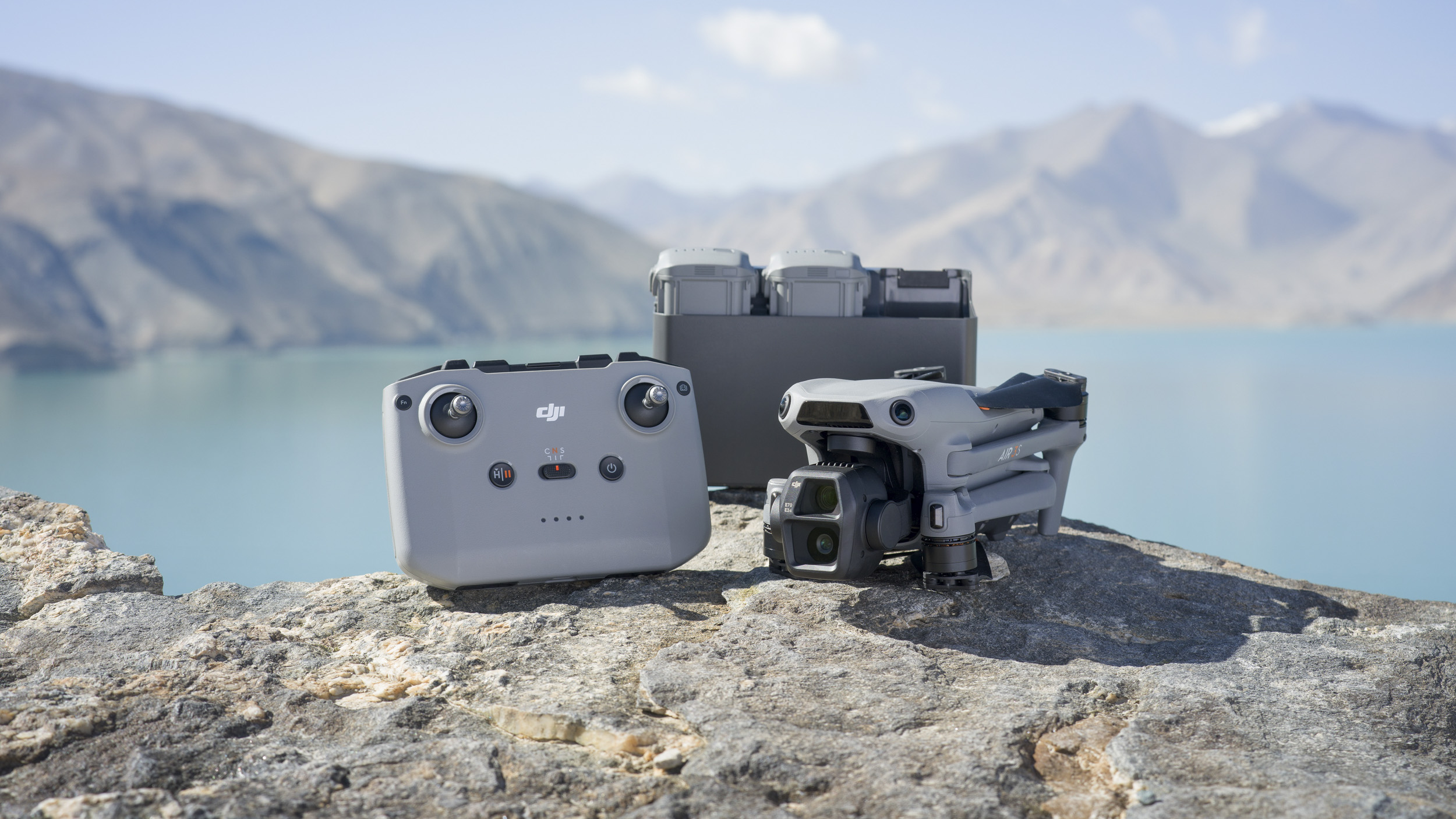A little over a year since the Air 3 took to the skies, DJI has followed it up with an iterative update in the shape of the new DJI Air 3S. We already rated the DJI Air 3 as the best all-round drone, and its successor – which you can learn more about in our in-depth DJI Air 3S review – delivers even better bang for buck for enthusiast pilots keen on capturing high-quality aerial images.
The key upgrades delivered by the Air 3S are its dual-camera array, which now includes a primary 24mm camera that utilizes a larger 1-inch sensor, alongside the secondary camera – a 3x telephoto zoom (70mm approx) for the times you need to get a tighter perspective of your subjects.
In addition to a better main camera, the Air 3S is equipped with front-facing LiDAR – that’s a first for DJI – plus downward infrared time-of-flight (TOF) sensors and six vision sensors. Combined, this omnidirectional obstacle-sensing tech enables the Air 3S to automatically identify and avoid obstacles during its flight and return paths, for daytime and now nighttime imaging, together with ‘next-gen’ Smart Return to Home (RTH).
The DJI Air 3S is the ideal all-rounder, sitting between DJI’s best sub-250g drone, the Mini 4 Pro, and DJI’s professional Mavic series of drones, headlined by the Mavic 3 Pro. The Air 3S standard bundle with DJI’s RC-N3 controller costs $1,099 / £959 / AU$1,699, while the Fly More Combo is $1,399 / £1,239 / AU$2,129. You can upgrade the Fly More Combo by opting for the DJI RC 2 controller instead for $1,599 / £1,439 / AU$2,429. Those prices make the Air 3S a fair whack cheaper than the Mavic 3 Pro, but a little pricier than the Mini 4 Pro.
Worth the upgrade?
As its name suggests, the Air 3S is a minor upgrade of the Air 3, otherwise it probably would have been named the DJI Air 4. And for most people who own an Air 3, the Air 3S isn’t worth the upgrade. However, if you’re new to drones or looking to level up from sub-250g drones like the Mini 4 Pro, the Air 3S could be your best bet – though at 724g you’ll need a certificate of competency in most regions before taking the Air 3S airborne.
Updates-wise, firstly there’s that excellent 1-inch sensor in the main camera, which delivers 50MP stills, 4K video up to 120fps (that’s 4x slow motion), HDR video up to 4K 60fps, plus color-rich 10bit recording in DJI’s D-Log M color profile. The second camera features the same 1/1.3-inch sensor as the Air 3, with 48MP stills plus the same video recording modes as the main camera. These image-making chops are a cut above the Mini 4 Pro’s, although the triple-camera Mavic 3 Pro has a larger-still Four Thirds sensor for its main camera, plus 5.1K video recording.
DJI says that both cameras boast up to 14 stop of dynamic range through DJI’s D-Log M color profile, meaning that you retain plenty of detail in highlights and shadows, and can easily grade footage to get the look you like. There’s an all-new ‘Free panorama’ mode, which captures multiple images that you can stitch together for highly detailed compositions and framable prints. You also get 42GB of built-in storage.

Other stand-out features in the Air 3S include 360-degree active subject tracking with a new Subject Focusing feature, which together plans out a flight path based on the terrain, and works in conjunction with object sensing obstacle avoidance to keep your subject in sharp focus.
The Air 3S offers a max flight time of 45-minutes per battery – although quoted times are calculated in controlled environments, and you’ll generally get shorter durations in real-world use. Should you opt for the Fly More Combo you get an additional two batteries, effectively tripling your flight time per trip, while the Charging Hub supports fast charging and power accumulation, whereby the remaining power of low power batteries can be transferred to the one with the highest power remaining to get you airborne again faster.
The Air 3 was already an excellent drone, and as mentioned, if you own one there probably isn’t enough reason to upgrade to the Air 3S. However, for enthusiasts coming in fresh, the latest model is DJI’s most compelling all-rounder drone yet.

























